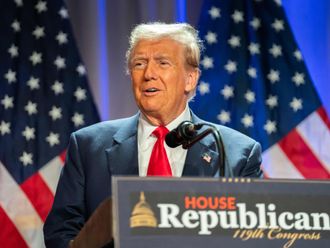Kiev: Ukrainian president Viktor Yanukovich moved to tighten his control further on Thursday when a top court considered proposals by allies that could secure him new powers to name his own government.
If the Constitutional Court rules in favour of the proposal, Yanukovich, who has quickly consolidated power since taking over in February, will rule in a presidential system like that of many other former Soviet republics, including Russia.
Orange Revolution
The court's 18 judges are being asked to find that political reform, carried out during the 2004 upheaval of the Orange Revolution that brought the pro-western Viktor Yushchenko to power, was unconstitutional.
Those reforms — supported by Yanukovich's camp at the time to frustrate Yushchenko once he took over — shifted some presidential powers to parliament, notably the right to name the prime minister and most cabinet members.
The curbs limited Yushchenko's effectiveness as president and set up a confrontation with parliament and his premier Yulia Tymoshenko. Wrangling paralysed decision-making and ultimately contributed to Yushchenko's downfall in this year's election.
"Confrontation at the top levels of power was caused not only by the weakness of the team, but by those amendments to the constitution which had upset its balance," Olena Lukash, a lawyer representing Yanukovich to the court, told judges.
Yanukovich, who was seen at the start as a creature of the powerful industrialists who bankrolled his campaign, has defied many commentators by consolidating power in his ex-Soviet republic quickly.
He has a loyal prime minister in Mykola Azarov and has moved his supporters into key roles in the military, state security, the courts and the banking sector, though the first real test of popular support for him will come in local elections on October 31.
Many say the court is weighted heavily in his favour and it is expected, ultimately, to rule the 2004 amendments void after several days of deliberations.
Preventing chaos
In the short term this would have implications for the status of the present government — elected according to 2004 rules — and many say the court would also have to recommend legislation to prevent a descent into constitutional chaos.
"Have you considered the jurisdicial consequences if we come to the conclusion that this law must be recognised as unconstitutional?" court judge Viktor Sishkin asked one deputy who presented the appeal for the 2004 to be quashed.












